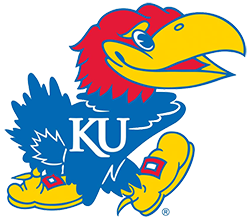Preparing a term paper proposal
Due date. The term paper proposal is due during the third week of the semester.
To submit a paper proposal for your research project, please adhere to the following guidelines. Your proposal, spanning 2-3 pages, should encompass the following elements:
-
Tentative Paper Title: Construct a descriptive, precise, and
focused title for your proposed term paper. Avoid overly broad
topics; instead, narrow down your research area to simplify
your subsequent tasks, such as reference searches.
Consider using a heuristic: craft a comprehensive sentence describing your research objective, then refine it into your paper's title. When seeking inspiration for good titles, analyze existing research paper titles within the chosen field.
-
Problem Statement: Offer a clear and concise problem
statement that defines the issue you intend to address or
the research you plan to undertake. Avoid merely describing
the symptoms of the problem or proposing solutions. Instead,
define the problem's core and emphasize its significance. Even
if you opt for a survey or taxonomy paper, create a problem
statement that warrants or invites such an approach. Articulate
the objectives, motivations, and the significance of your
chosen topic.
-
Intended Contributions: Articulate a clear description
of what your term paper aims to contribute to the field.
-
Research Methodology: Clearly outline your intended
research methodology, whether it involves:
- Basic research (which entails studying, synthesizing, organizing, evaluating, and summarizing existing research results)
- An empirical study
- Research involving experiments
- A survey and literature review. If you plan to prepare a literature review, ensure that it:
-- Does not consist of fragmented, disjointed summaries of individual articles, experiments, or studies.
-- Presents a critical and analytical synthesis of various findings or case studies (e.g., comparing, contrasting, relating).
-- Possesses a well-defined focus or theme, steering away from a purely chronological approach in favor of a thematic one (e.g., different theoretical or contrasting approaches).
-- While not necessarily exhaustive, covers the most significant contributions in the field.
Consult the ACM Computing Surveys for ideas and suggestions on how a survey paper is organized.
-
Tentative Schedule: Provide a preliminary schedule outlining
your proposed timeline for completing various stages of your
term paper.
- References. In addition to the proposal, include a list of 10--15 references (from credible, peer-reviewed sources) related to the topic of your term paper proposal. You must CAREFULLY follow the APA or Harvard citation format and and bibliography style (also briefly presented below). No exceptions here. Depending on the focus of your proposed work, most of your references, especially for introductory papers, should be drawn from the following journals (see the course-specific requirements):
- Communications of the ACM (general computing/IT)
- IEEE Computer (general computing/IT)
- IEEE Software (software engineering)
- IEEE Security & Privacy (security)
- IEEE Communications (communications and signal processing)
- IEEE Network (computer networks)
For more advanced graduate papers, you should consider transactions and high quality conference proceedings. See course specific guidelines.
- Formatting references. The reference listing should be as complete as possible. It is very likely that your references will include journal articles, conference proceedings articles, books (or chapters in a book or in a collection), and technical reports. Follow a bibliography style like the APA. The following is a list of required items for each article:
- Journal articles: author, title, journal, volume, number, year, pages [month].
- Books: author (or editor), title, publisher, year, edition, publisher address.
- Book chapters: same as book and/or conference proceedings articles.
- Conference proceedings: author, title, proceedings title, pages, year, publisher, [editor, month, place]
- Technical reports: author, title, institution, year [number, address]
- Thesis/dissertation: author, title, school, year, [address]
- References. In addition to the proposal, include a list of 10--15 references (from credible, peer-reviewed sources) related to the topic of your term paper proposal. You must CAREFULLY follow the APA or Harvard citation format and and bibliography style (also briefly presented below). No exceptions here. Depending on the focus of your proposed work, most of your references, especially for introductory papers, should be drawn from the following journals (see the course-specific requirements):
Powerful digital libraries (links)

Professor Hossein Saiedian
Electrical Engineering & Computer Science
Eaton Hall 3012
University of Kansas
1520 W 15th St
Lawrence, KS 66045-7621
+1 785 864-8812
saiedian at eecs.ku.edu


